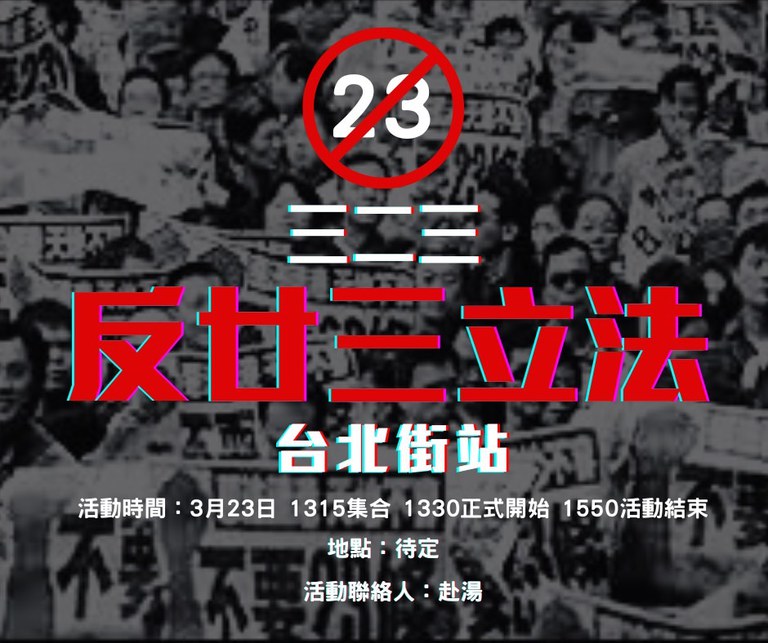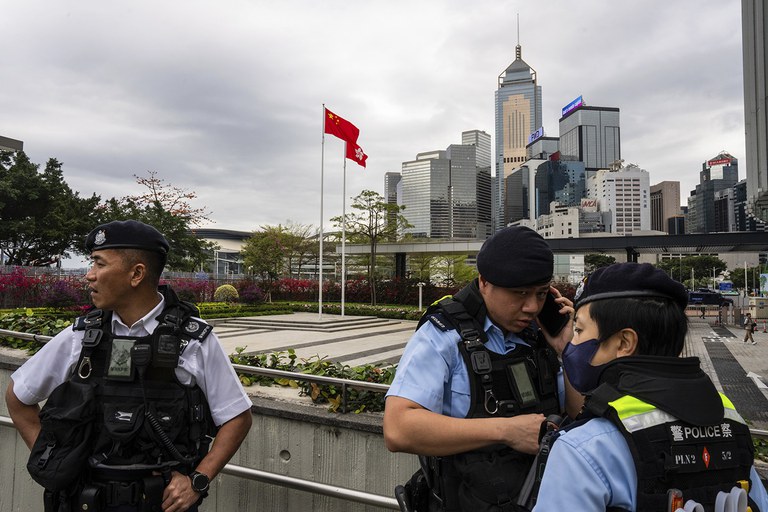Overseas activists have vowed to keep up their campaign for Hong Kong’s promised rights and freedoms amid international condemnation of the city’s second national security law, which critics say will likely widen an ongoing crackdown on dissent when it takes effect on Saturday.
The Taiwan-based advocacy group Hong Kong Outlanders said the Safeguarding National Security Law, passed unanimously in a Legislative Council with no opposition members on Tuesday, had been rushed through in just 11 days.
“We will continue to speak out without fear of this evil law,” the group said, announcing a protest on the streets against the legislation on Saturday, to “defend the rights of Hong Kongers.”
U.S. Senator Ben Cardin, who chairs the Senate Foreign Relations Committee, said the law will have “a chilling effect on the remaining vestiges of Hong Kong’s autonomy and freedoms.”
He said he was “alarmed” about the impact of the law on American citizens, businesses and independent media in the city.
“I urge the Beijing and the Hong Kong governments to rescind Article 23, as well as the 2020 National Security Law, and restore to the people of Hong Kong their basic rights and freedoms,” Cardin said, adding that Congress will continue to reevaluate the treatment of Hong Kong as a separate entity from the rest of China under U.S. law.
Making life harder
British Foreign Secretary David Cameron warned that the law will make it harder to live, work and do business in Hong Kong.
“It fails to provide certainty for international organizations, including diplomatic missions, who are operating there,” Cameron said in a statement on the government website.

“It will entrench the culture of self-censorship which now dominates Hong Kong’s social and political landscape, and enable the continuing erosion of freedoms of speech, of assembly, and of the media,” he said.
In Beijing, foreign ministry spokesperson Lin Jian said such comments were “slander.”
“China expresses strong dissatisfaction and firm opposition to certain countries and institutions that denigrate and smear Hong Kong’s Safeguarding National Security Ordinance,” Lin told a regular news briefing in Beijing.
“The Chinese government is unswervingly determined to safeguard national sovereignty, security, and development interests, and … to oppose any external interference in Hong Kong affairs,” he said.
‘Puppet government’
U.S.-based Hong Kong rights campaigner Frances Hui said she had “struggled to get out of bed” due to depression after the government bypassed democratic institutions that took decades to build.
“I know #JoshuaWong, Wong Ji-yuet, and others will probably spend more days in jail under this law,” Hui said via her X account, in a reference to democracy activists already imprisoned for taking part in protests in the city.
“The only remaining bits of freedom in the city will soon be crumbled. Hong Kong will become just another Chinese city with a puppet govt that obeys China,” she wrote.
But she added: “I know our determination for freedom & democracy will never change. One day, we will meet again.”
Taiwan’s ruling Democratic Progressive Party condemned the passing of the law as the “darkest day” for Hong Kong.

“Hong Kong is now completely shrouded in the shadow of the Chinese Communist Party’s totalitarian rule,” the party said in a statement on Wednesday, adding that the Legislative Council was now just a “rubber stamp” for Beijing.
It said the new law’s more expansive interpretations of national security crimes would “completely destroy what Hong Kong has left in the way of human rights or a legal system.”
The party vowed to support the international effort to help Hong Kong, safeguard democracy and counter totalitarianism.
Investors will leave
In Japan, Foreign Ministry Press Secretary Kobayashi Maki said the government has “grave concern” about the law, and called on the authorities to ensure that the rights of Japanese nationals and companies in Hong Kong were respected, citing close economic ties with the city.
U.S. State Department spokesperson Vedant Patel said the law has the potential “to accelerate the closing of Hong Kong’s once open society.”
“We’re alarmed by the sweeping and what we interpret as vaguely defined provisions laid out in their Article 23 legislation,” he told a regular news briefing in Washington on Tuesday.
“We think that this was fast-tracked through the non democratically elected Legislative Council after a truncated public comment period,” he said, adding that U.S. officials are in the process of analyzing potential risks to American interests under the law.
Wu Jui-ren, an associate researcher at Taiwan’s Academia Sinica, predicted that the law will spell the end of Hong Kong’s status as a global financial center.
Foreign investors will leave one after another, he predicted.
Patrick Poon, human rights campaigner and visiting researcher at the University of Tokyo, said the law gives officials too much power, especially when it comes to defining what is meant by “collusion with foreign forces” or “state secrets,” or what constitutes subversion.
He said anyone working for foreign organizations in the city could be at risk under the law, even if they post something online that the government doesn’t like.
“It’s all entirely up to those who enforce the law to decide, in line with the practice of totalitarian governments,” Poon said. “Hong Kong has gone a step further towards being just like mainland China.”
Translated by Luisetta Mudie. Edited by Malcolm Foster.



